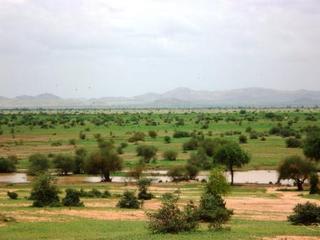5月中旬に南ダルフールで誘拐された、知人のアメリカ人女性が105日ぶりに解放された。
誘拐された本人にとってもそうだが、彼女の解放を心待ちにしていた家族、親友、同団体のスタッフにとって、どんなにこの105日が長かったことか。誘拐事件が多発する中で、非常に嬉しいニュースだ。
残念ながら、今現在、日本のメディアでは報道されていないようだ。もっとアフリカの報道についても、とりあげてほしいものだ。以下は、現地スーダン・トリビューンからの記事を抜粋。
http://www.sudantribune.com/spip.php?article36126
Sudan Tribune
Kidnapped US aid worker freed in Darfur
Tuesday 31 August 2010.
August 30, 2010 (KHARTOUM) – The ordeal of an American female aid worker, Flavia Wagner, kidnapped in Sudan’s restive region of Darfur since mid-March has come to an end when she was rescued by local authorities yesterday, her organization has told Sudan Tribune.
After spending 105 days in captivity, the 36-year-old woman of the North Carolina-based Samaritan’s Purse aid organization was yesterday “liberated by the police in Abu Agora in South Darfur State”, Sudan’s foreign ministry announced to AFP.
The aid worker was kidnapped by an unknown group of gunmen on March 18 from the same area, which is located 25 miles southwest of Nyala, the provincial capital of South Darfur.
Her name was only disclosed by Samaritan’s Purse yesterday. A statement posted yesterday on the organization’s website said that Wagner is reported to be “well and looking forward to being reunited with her family in the United States.”
News of her release was confirmed by the vice-president of Samaritan’s Purse’s Programs and Government Relations, Ken Isaacs, who toldSudan Tribune that they appreciated the role played the Sudanese government and security services who secured her safe release. Issac also praised the role of the US Administration.
There have been suggestions that the high incidence of kidnapping of foreign aid workers in Darfur is encouraged by the fact that some organizations have paid ransom money to have their staff freed.
However, Issac denied that his organization has struck any deal with the kidnappers or paid ransom.
Wagner’s release comes five days after the UN’s Humanitarian Coordinator marked her 100th day of captivity by urging Sudanese authorities to secure her release and ensure a safe environment for aid workers in Darfur.
Abduction of aid workers in Darfur started in March 2009, coinciding with the International Criminal Court’s decision to charge president Al-Bashir with war crimes connected to the seven-year conflict in the region.
The conflict began in 2003 when rebels belonging mostly to African ethnicities rose up against the Arab-dominated central government in Khartoum, accusing it of negligence and discrimination.
According to UN estimates, the conflict has led to the death of some 300,000 people and displacement of more than 2 million.
The Sudanese government says that the death toll is around 10,000. In July this year the court added genocide to the charges against Al-Bashir.
(ST)













